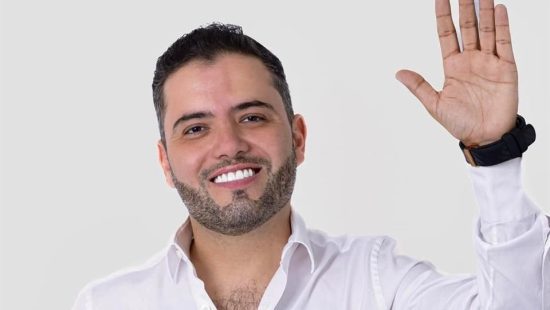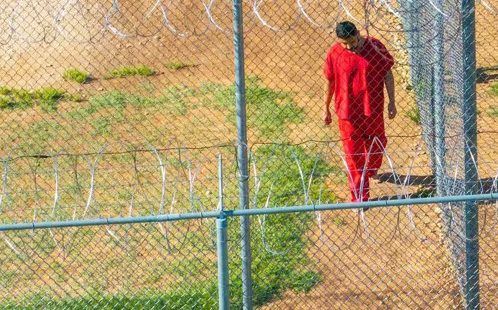Pedro Lorenzo Concepción’s voice seems to be sinking, drowning among the vast wetlands populated by mosquitoes, pythons, and alligators that inhabit the Everglades. He speaks on the phone from Alligator Alcatraz itself, the most feared migrant detention center that the Republicans built in Florida’s backyard. When asked how he is, he answers that he is obviously not well; today is the ninth day of his hunger strike.
“I feel weak, with a lot of heartburn,” says Pedro from the bottom of his bunk in the cell where he remains with 31 other inmates, some of whom help him get up, hand him a bottle of water, and open it for him, because his strength is running out, as much or more than his patience.
Four days ago, he was taken to the hospital. His wife, Daimarys Hernández, 40, learned about it because the partner of another detained migrant called her to inform her. Daimarys immediately called almost every hospital in Miami, frightened, where she repeated the same questions: if they knew about him, a 44-year-old Cuban migrant detained by Immigration and Customs Enforcement (ICE) and transferred to Alligator Alcatraz prison, who had refused to eat since July 22.
Every medical center responded that they had no news of a patient with those characteristics. They even denied his presence at Kendall Hospital, where she later learned Pedro had been handcuffed for three days while doctors tried to convince him to eat something. Pedro refused. He was offended when they suggested he drink at least a juice, now that “no one was watching.” He turned to them and said, “Do you know why I can’t do that?” he says now, his voice cracking. “Because I have to respect myself and everyone with me.”
This was the reason he signed a document stating his intention not to receive any kind of aid. “I don’t want food; I refuse any treatment. I didn’t even ask to be taken to the hospital, because I’m fighting for my family and all Cubans, and I belong where my people are, in prison, suffering the same hardship they’re going through.”








